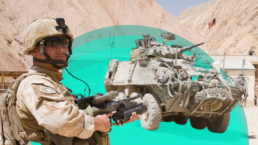By David Bromwich, The Nation
Bush and Cheney sold the war, Obama normalized it, Trump disowned it, and Biden had the courage to end it.
Cecil Rhodes once said he would annex the planets if he could, and the United States, over the past four decades, has nursed an ambition quite as otherworldly. Everyone (we believed) would choose our way of life if only they had the chance. It followed that we should try to get them there through arts and manners and commerce and, if necessary, through wars. The wars would, of course, be fought against the enemies of freedom, even if the enemies were their neighbors and compatriots.
Tony Blair put the case memorably, just three weeks after September 11, 2001: “The kaleidoscope has been shaken, the pieces are in flux, soon they will settle again. Before they do, let us reorder this world around us.” What poetry! To look on the world as a toy! That, for me, was the initial impression of Blair’s words. More peculiar, as one looks back, was the emphasis on dispatch. The reordering would be done soon and speedily, with a brave unconcern for prudential caution.

A few days earlier, Dick Cheney had spoken about the necessity of working “the dark side.” The larger context of the vice president’s September 16 appearance on Meet the Press showed the consonance of his thinking with Blair’s. “Things have changed since last Tuesday,” Cheney said. “The world shifted in some respects.” But he spoke with a dour realism about the likely duration of the conflict: “There’s not going to be an end date that we say, ‘There, it’s all over with.’” George W. Bush, for his part, issued a promise of both lasting resolve and a lucky ending: “We will not waver, we will not tire, we will not falter, and we will not fail. Peace and freedom will prevail.”
Recent Posts
‘Unconstitutional. Unethical. Authoritarian.’ ICE Bars Millions Of Immigrants From Bond Hearings
July 18, 2025
Take Action Now One watchdog said the new policy “seems like a blatant attempt to stop them from exercising their right to due process.”……
Americans Are Not Nearly Alarmed Enough About Climate Change
July 18, 2025
Take Action Now Americans still don’t comprehend how imminent, dangerous, and far-reaching the threat is—and journalists are partly to blame.By…
The IRS Is Building A Vast System To Share Millions Of Taxpayers’ Data With ICE
July 17, 2025
Take Action Now ProPublica has obtained the blueprint for the Trump administration’s unprecedented plan to turn over IRS records to Homeland Security…
Israel’s Sudden Assault On Syria Is Unchecked Aggression
July 17, 2025
Take Action Now Jerusalem is bombing Damascus and threatening al-Sharaa’s rule, while Washington was hoping to help the nascent government on…




